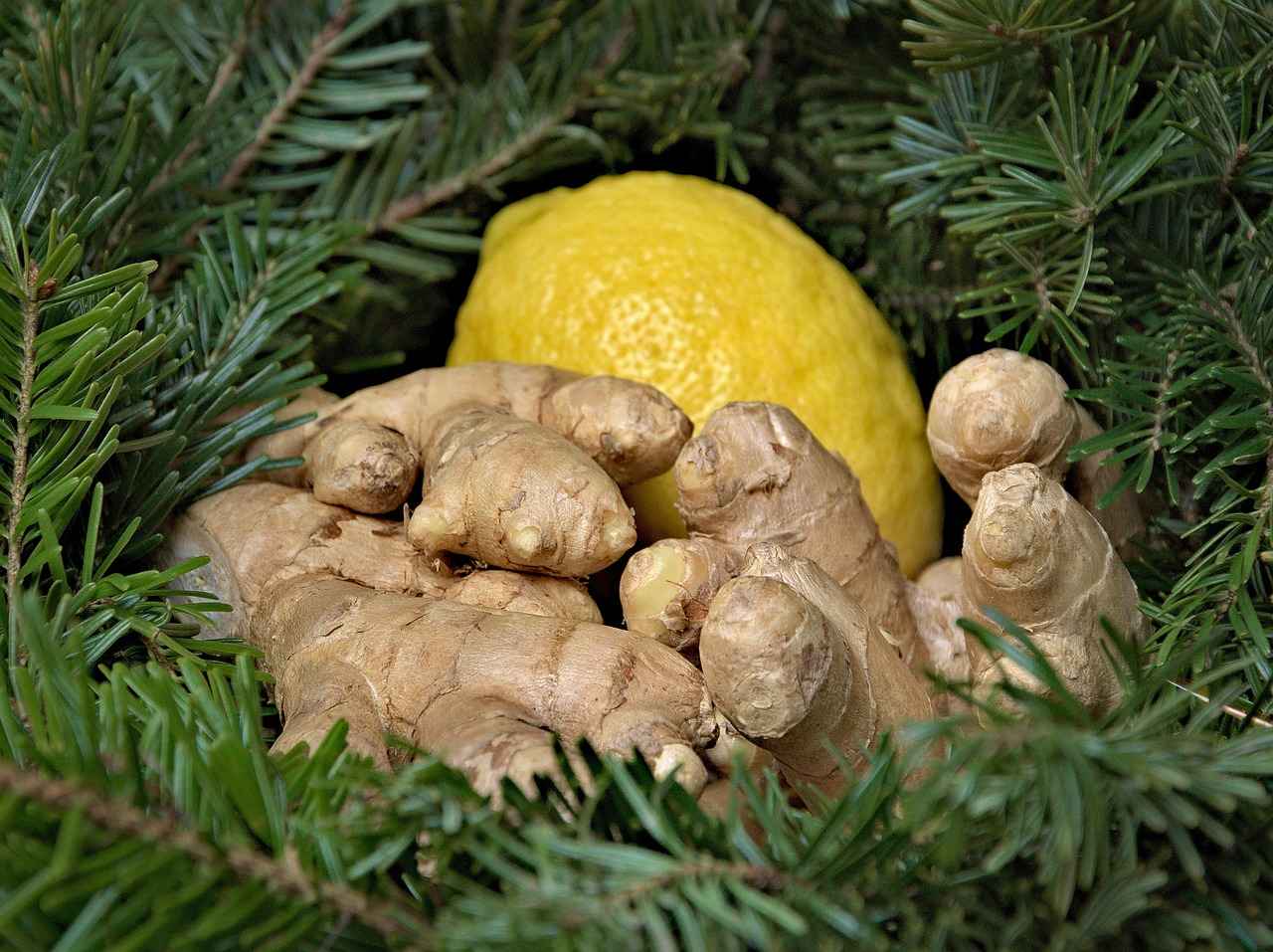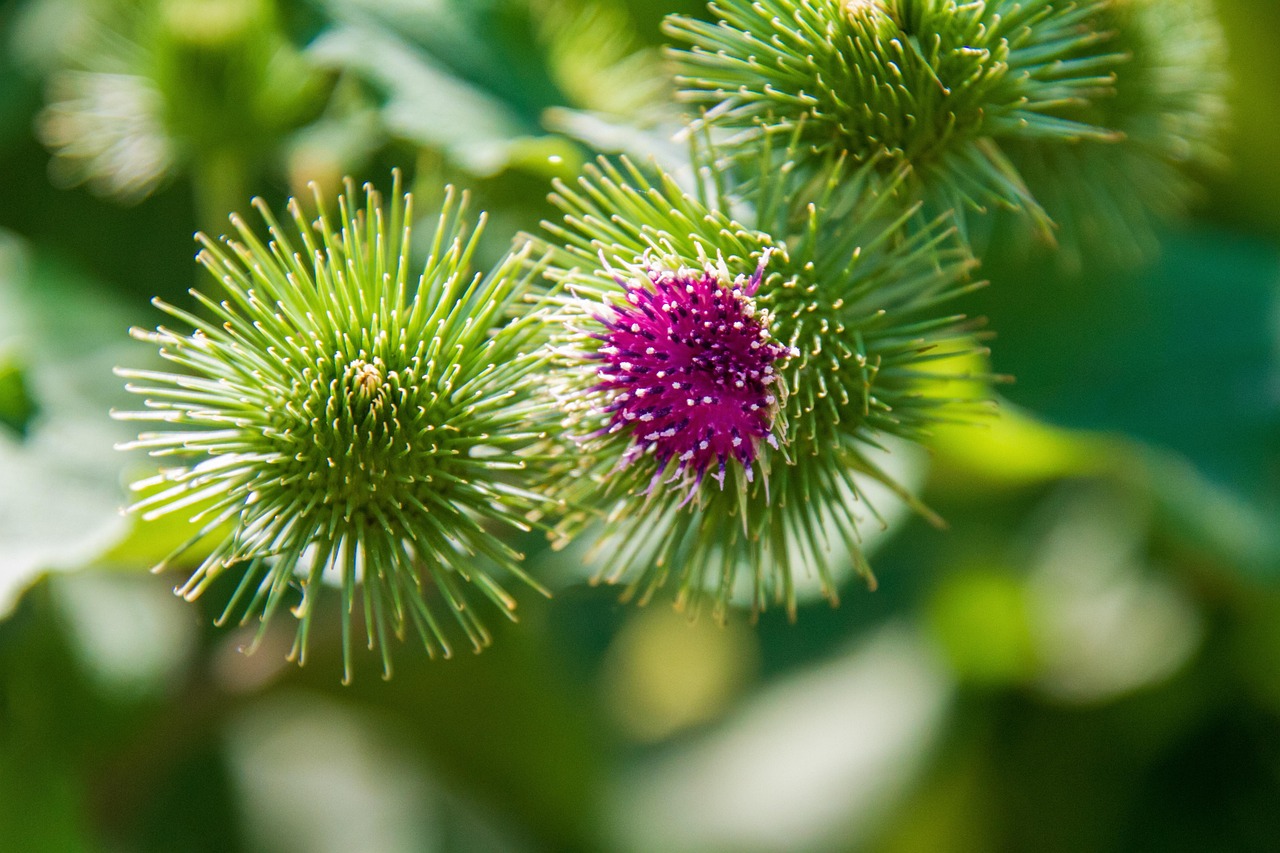This article examines the soothing effects of valerian root, highlighting its numerous benefits, applications, and scientific support. It serves as a comprehensive guide for individuals seeking natural remedies for anxiety and sleep disturbances.
What is Valerian Root?
Valerian root is a herbal remedy extracted from the Valeriana officinalis plant, renowned for its calming properties. Historically, it has been utilized for centuries to foster relaxation and enhance sleep quality.
History and Traditional Uses
Valerian root boasts a rich heritage in herbal medicine, tracing back to ancient Greece and Rome. It was commonly employed to address insomnia, anxiety, and various nervous conditions.
- Ancient Remedies and Practices: In ancient societies, valerian was frequently mixed with other herbs to amplify its calming effects, underscoring its longstanding reputation as a natural sedative.
- Valerian in Ancient Greece: The Greeks harnessed valerian root for its soothing attributes, often recommending it for alleviating anxiety and promoting restful sleep.
- Valerian in Traditional Chinese Medicine: Valerian root is esteemed in Traditional Chinese Medicine for its capacity to calm the mind and support emotional balance.
Modern Applications of Valerian Root
In contemporary wellness practices, valerian root is widely available in dietary supplements and herbal teas, reflecting its relevance in efforts to mitigate stress and enhance sleep.
How Does Valerian Root Work?
Valerian root is thought to impact neurotransmitters in the brain, particularly gamma-aminobutyric acid (GABA), which is vital for regulating mood and anxiety levels.
Benefits of Valerian Root
- Improving Sleep Quality: Research suggests that valerian root can significantly reduce the time taken to fall asleep and enhance overall sleep quality.
- Reducing Anxiety Symptoms: Valerian root has been shown to alleviate anxiety symptoms by promoting relaxation and reducing stress.
Potential Side Effects and Considerations
While generally safe, valerian root may cause mild side effects such as drowsiness, dizziness, or digestive issues. Responsible usage is crucial.
How to Use Valerian Root
- Valerian Root Tea Preparation: To make valerian root tea, steep dried root in hot water, creating a soothing beverage that aids in relaxation.
- Capsules and Supplements: Valerian root is also available in capsule form, offering a convenient option for those preferring standardized doses.
Conclusion: Embracing Natural Calm with Valerian Root
Valerian root provides a natural alternative for those seeking relief from anxiety and sleep disturbances. With its extensive history and proven benefits, it remains a valuable asset in holistic health practices.

What is Valerian Root?
Valerian root is a well-known herbal remedy that is extracted from the Valeriana officinalis plant. This natural herb has gained popularity due to its remarkable calming effects, which have been recognized for centuries. Historically, valerian root has been used to promote relaxation and enhance sleep quality, making it a favored choice for those seeking natural solutions to stress and insomnia.
Valerian root is often recommended for individuals experiencing anxiety or sleep disturbances. Its use dates back to ancient civilizations, where it was commonly employed in various traditional medicine practices. The soothing properties of valerian root are attributed to its ability to influence neurotransmitters in the brain, particularly gamma-aminobutyric acid (GABA). This neurotransmitter plays a crucial role in regulating mood and anxiety levels, which contributes to the herb’s calming effects.
Many people today turn to valerian root as a natural alternative to pharmaceutical sleep aids. It is available in several forms, including capsules, teas, and tinctures, allowing users to choose the method that best suits their lifestyle. Research suggests that valerian root can significantly reduce the time it takes to fall asleep and improve overall sleep quality.
In addition to promoting better sleep, valerian root is also known for its ability to alleviate symptoms of anxiety. By fostering relaxation and reducing stress, it serves as a gentle yet effective remedy for those seeking to manage their anxiety levels without the side effects often associated with conventional medications.
While valerian root is generally considered safe for most individuals, it is essential to consult a healthcare provider before starting any new supplement, especially for those on medications that may interact with its effects. Overall, valerian root remains a valuable herbal remedy for promoting natural calm and enhancing well-being.

History and Traditional Uses
History and Traditional Uses of Valerian Root
Valerian root, derived from the Valeriana officinalis plant, boasts a long and fascinating history in herbal medicine. Its use can be traced back to ancient civilizations, including Greece and Rome, where it was revered for its calming properties. Traditionally, this herb was employed to address various ailments, particularly insomnia, anxiety, and other nervous disorders.
In ancient times, valerian was not just a standalone remedy; it was often combined with other herbs to enhance its soothing effects. This practice underscores its long-standing reputation as a natural sedative. Ancient physicians recognized its potential and recommended it for those suffering from sleep disturbances and heightened anxiety.
Ancient Remedies and Practices
- In Ancient Greece, physicians like Hippocrates noted the benefits of valerian root for alleviating stress and promoting better sleep.
- The Romans also utilized valerian in their medicinal practices, often prescribing it to soldiers and citizens alike to combat the stresses of daily life.
Valerian in Traditional Chinese Medicine
Across the world, valerian root has been embraced in various cultures, including Traditional Chinese Medicine. Here, it is valued for its ability to calm the mind and support emotional balance, showcasing the herb’s global recognition and versatility.
Modern Applications
Today, valerian root continues to be a popular choice in the realm of natural remedies. It is commonly found in dietary supplements, herbal teas, and tinctures, reflecting its relevance in contemporary wellness practices aimed at reducing stress and enhancing sleep quality.
In conclusion, valerian root’s rich history and traditional uses highlight its enduring significance as a natural remedy. Whether in ancient herbal practices or modern wellness routines, valerian root remains a trusted ally for those seeking relief from anxiety and sleep disturbances.
Ancient Remedies and Practices
In the tapestry of herbal medicine, valerian root holds a significant place, particularly in ancient cultures where it was revered for its calming properties. Historical records indicate that this herb was frequently combined with other natural ingredients to enhance its soothing effects, creating powerful remedies that have stood the test of time.
Across various ancient civilizations, the use of valerian was not limited to a single application. For instance, in ancient Greece, it was often mixed with herbs like chamomile and lemon balm, both known for their tranquilizing effects. This combination was believed to amplify the calming benefits, providing a more profound sense of relaxation. The Greeks recognized valerian’s potential to alleviate anxiety and promote restful sleep, leading to its widespread use in traditional therapies.
Similarly, in Traditional Chinese Medicine, valerian root was valued for its ability to support emotional balance and calm the mind. Practitioners often paired it with other herbs, such as ginseng and licorice, to create formulations that addressed various ailments, including stress and insomnia. This practice illustrates the herb’s global recognition and versatility across different cultures.
Moreover, medieval herbalists in Europe also embraced valerian, often incorporating it into their remedies alongside lavender and hops. These combinations were used not only for their sedative properties but also for their ability to enhance overall well-being, showcasing the herb’s historical significance in holistic health practices.
As we explore the roots of valerian’s use in ancient medicine, it becomes evident that its reputation as a natural sedative has been well established for centuries. This rich history not only highlights the herb’s enduring appeal but also its potential as a valuable component in modern wellness practices.
Valerian in Ancient Greece
The use of valerian root in ancient Greece is a fascinating chapter in the history of herbal medicine. This herb, derived from the Valeriana officinalis plant, was not only recognized for its calming effects but also revered for its potential to address various health issues, particularly those related to anxiety and sleep disturbances.
In ancient Greek culture, valerian was often recommended by physicians and herbalists as a natural remedy for insomnia and nervous disorders. Its soothing properties were believed to promote relaxation and tranquility, making it a popular choice among individuals seeking relief from the stresses of daily life. The Greeks understood the importance of mental well-being and often turned to nature for solutions.
- Historical Context: Valerian root was frequently mentioned in the writings of ancient scholars, highlighting its significance in their medical practices.
- Combination with Other Herbs: It was often used in conjunction with other calming herbs to enhance its effects, showcasing the Greeks’ sophisticated understanding of herbal synergy.
- Cultural Beliefs: Valerian was not just a medicinal herb; it also held cultural significance, often associated with rituals aimed at promoting peace and serenity.
Moreover, the Greeks recognized valerian’s role in enhancing sleep quality, which was vital for maintaining overall health. They believed that a good night’s sleep was essential for both physical and mental rejuvenation. This belief paved the way for the herb’s enduring legacy in herbal therapies, influencing practices in subsequent cultures, including Traditional Chinese Medicine.
In conclusion, valerian root’s historical significance in ancient Greece highlights its long-standing reputation as a natural sedative. Its use in addressing anxiety and sleep issues reflects a deep understanding of the mind-body connection, a concept that continues to resonate in modern herbal medicine.
Valerian in Traditional Chinese Medicine
has been a focal point for practitioners seeking natural methods to promote emotional well-being and tranquility. This ancient herb, known scientifically as Valeriana officinalis, has gained recognition not only for its calming effects but also for its holistic approach to mental health.
In the realm of Traditional Chinese Medicine (TCM), valerian root is revered for its ability to calm the mind and restore emotional balance. TCM emphasizes the importance of harmony within the body and mind, and valerian is seen as a critical component in achieving this balance. Its use highlights the global acknowledgment of this herb across various cultures and healing practices.
Historical Context
- Valerian root has been utilized since ancient times, with records indicating its use in Chinese herbal medicine for thousands of years.
- It was traditionally prescribed for conditions such as insomnia, anxiety, and stress-related disorders.
Mechanism of Action
Valerian root is believed to influence the body’s neurotransmitters, particularly gamma-aminobutyric acid (GABA). GABA plays a crucial role in regulating mood and anxiety levels by inhibiting nerve transmission, which promotes relaxation. This mechanism aligns with TCM principles, where the balance of energy (or “Qi”) is essential for overall health.
Modern Application in TCM
Today, valerian root is incorporated into various herbal formulas within TCM, often combined with other calming herbs to enhance its effects. Practitioners may recommend valerian as part of a comprehensive treatment plan for individuals experiencing emotional distress.
Conclusion
Valerian root’s significance in Traditional Chinese Medicine underscores its potential as a natural remedy for emotional and mental health. With its rich history and continued use, it serves as a testament to the enduring value of herbal therapies in achieving holistic well-being.
Modern Applications of Valerian Root
Valerian root has gained significant popularity in recent years, becoming a staple in the wellness community. Its natural calming properties make it a favored choice for individuals seeking to manage stress and improve sleep quality. As people increasingly turn to herbal remedies, valerian root has found its place in various products, including dietary supplements and herbal teas.
- Dietary Supplements: Valerian root is commonly available in capsule or tablet form, providing a convenient option for those looking to incorporate it into their daily routine. Many supplements combine valerian with other calming herbs, such as chamomile and passionflower, to enhance their effectiveness.
- Herbal Teas: Valerian root tea is a popular choice for those seeking a soothing bedtime ritual. The process of brewing the dried root in hot water not only delivers its calming effects but also creates a comforting experience that many find beneficial for winding down at the end of the day.
- Tinctures and Extracts: For those preferring liquid forms, valerian root is also available as a tincture or extract. These forms can be easily added to water or other beverages, offering flexibility in consumption.
Research supports the effectiveness of valerian root in promoting relaxation and reducing anxiety. A number of studies have shown that it can significantly improve sleep quality, making it a viable alternative for those who prefer to avoid pharmaceutical sleep aids.
Moreover, valerian root’s appeal extends beyond its calming effects. It is often included in holistic health practices, where it is used in conjunction with practices like yoga and meditation to enhance overall well-being.
As the demand for natural wellness solutions continues to rise, valerian root remains a prominent player in the herbal remedy market. Its versatility and effectiveness make it a valuable addition to any natural health regimen.
Conclusion: Valerian root’s modern applications highlight its enduring relevance in today’s wellness landscape. Whether consumed as a dietary supplement, brewed as a tea, or used in tincture form, it offers a natural approach to managing stress and improving sleep quality.

How Does Valerian Root Work?
Understanding the Mechanism of Valerian Root
Valerian root, derived from the Valeriana officinalis plant, has garnered attention for its calming properties. But how exactly does it work? This section delves into the intricate mechanisms behind valerian root’s soothing effects, particularly its influence on neurotransmitters.
The Role of Neurotransmitters
Neurotransmitters are chemical messengers in the brain that transmit signals between nerve cells. They play a pivotal role in regulating various physiological functions, including mood, anxiety, and sleep. One of the key neurotransmitters influenced by valerian root is gamma-aminobutyric acid (GABA).
GABA: The Calming Neurotransmitter
GABA is known for its inhibitory effects on the nervous system. It helps to reduce neuronal excitability throughout the nervous system, promoting feelings of calm and relaxation. Valerian root is believed to enhance the activity of GABA, thereby amplifying its calming effects. This interaction may help alleviate anxiety and improve sleep quality.
Scientific Insights
Numerous studies have explored the efficacy of valerian root in promoting relaxation and reducing anxiety. Research indicates that valerian root may increase GABA levels in the brain, leading to improved sleep onset and quality. A systematic review of clinical trials found that valerian root significantly reduces the time it takes to fall asleep and enhances overall sleep quality.
Conclusion: Harnessing the Power of Valerian Root
Understanding how valerian root works provides valuable insight into its potential as a natural remedy for anxiety and sleep disturbances. By influencing GABA levels, valerian root offers a holistic approach to achieving relaxation and improving sleep, making it a sought-after option for those looking to embrace natural health solutions.
GABA and Its Role in Relaxation
GABA (gamma-aminobutyric acid) is a crucial neurotransmitter in the human brain, primarily known for its role in inhibiting nerve transmission. This function is vital for promoting a sense of calm and relaxation, making GABA a key player in managing stress and anxiety levels. Its inhibitory effects help to balance the excitatory signals in the brain, leading to a more tranquil mental state.
Valerian root, derived from the plant Valeriana officinalis, has been recognized for its ability to enhance GABA activity. This enhancement may explain why valerian root is often used as a natural remedy for anxiety and sleep disorders. By increasing GABA levels, valerian root can help to promote relaxation and improve overall well-being.
GABA functions by binding to specific receptors in the brain, leading to a decrease in neuronal excitability. This process is essential for maintaining a balance between excitatory and inhibitory signals. When GABA binds to its receptors, it can lead to feelings of calmness and reduced anxiety, making it an important target for treatments aimed at mental health.
Research suggests that valerian root may enhance the effects of GABA by increasing its availability in the brain. This action could potentially lead to improved sleep quality and reduced anxiety levels. Many individuals seeking natural remedies for stress find valerian root to be beneficial, as it works synergistically with the body’s natural processes.
Numerous studies have highlighted the importance of GABA in promoting relaxation and alleviating anxiety. For instance, a study published in the Journal of Clinical Psychiatry found that individuals with lower GABA levels reported higher levels of anxiety. This evidence underscores the significance of maintaining optimal GABA levels for mental health.
In conclusion, understanding the role of GABA in relaxation helps to illuminate why valerian root is a popular choice for those looking to enhance their mental well-being. By promoting GABA activity, valerian root may serve as an effective natural remedy for stress and sleep-related issues.
Scientific Studies Supporting Valerian’s Efficacy
Valerian root has garnered significant attention in the realm of herbal medicine, particularly for its potential to address issues like insomnia and anxiety. A variety of scientific studies have explored its effectiveness, providing a solid foundation of empirical evidence that supports its traditional applications.
One notable study published in the Journal of Sleep Research found that participants who consumed valerian root experienced a marked improvement in sleep quality compared to those who received a placebo. The study highlighted that valerian reduced the time taken to fall asleep and increased the duration of sleep, suggesting its role as a natural sedative.
Another comprehensive review in the American Journal of Medicine analyzed multiple trials involving valerian root and concluded that it could significantly alleviate symptoms of anxiety. The review emphasized that valerian works by enhancing the effects of gamma-aminobutyric acid (GABA), a neurotransmitter responsible for promoting relaxation and reducing nerve excitability.
Furthermore, a meta-analysis published in Phytotherapy Research examined various clinical trials and found consistent results supporting valerian root’s efficacy in improving sleep quality and reducing anxiety symptoms. This analysis reinforced the herb’s therapeutic potential and its long-standing reputation in traditional medicine.
In addition to these studies, anecdotal evidence from users and practitioners of herbal medicine continues to affirm valerian’s calming properties. Many individuals report significant improvements in their sleep patterns and reductions in anxiety levels after incorporating valerian root into their routines.
In conclusion, the body of research supporting valerian root’s effectiveness is growing, establishing it as a viable option for those seeking natural remedies for sleep disturbances and anxiety. Its historical use, combined with modern scientific validation, makes valerian a compelling choice for holistic health enthusiasts.

Benefits of Valerian Root
Valerian root, derived from the Valeriana officinalis plant, has gained popularity in the realm of natural health due to its numerous benefits. This herb is particularly renowned for its ability to enhance sleep quality, reduce anxiety, and promote overall well-being. Below, we explore these benefits in detail, providing insights into how valerian root can be a valuable addition to your wellness routine.
- Improved Sleep Quality: Valerian root is widely recognized for its effectiveness in improving sleep quality. Studies have shown that it can significantly reduce the time it takes to fall asleep and increase the duration of deep sleep. Users often report feeling more rested and rejuvenated upon waking.
- Reduced Anxiety Levels: Many individuals turn to valerian root as a natural remedy for anxiety. Its calming properties help to alleviate symptoms of stress and anxiety, making it a safer alternative to pharmaceutical options.
- Enhanced Overall Well-Being: In addition to its sleep and anxiety benefits, valerian root contributes to overall emotional balance. By promoting relaxation and reducing stress levels, it helps improve mood and increases the quality of life.
How to Use Valerian Root: Valerian root can be consumed in various forms, including teas, capsules, and tinctures. Each method offers unique advantages, allowing individuals to choose what works best for their lifestyle.
Potential Side Effects: While valerian root is generally safe for most people, it may cause mild side effects such as drowsiness or digestive upset. It is advisable to consult with a healthcare provider before starting any new supplement, especially if you are taking other medications.
Conclusion: Valerian root stands out as a natural solution for those seeking relief from sleep disturbances and anxiety. With its extensive history of use and a growing body of scientific support, it remains a popular choice among natural health enthusiasts.
Improving Sleep Quality
is a vital aspect of overall health and well-being. Many individuals struggle with sleep-related issues, and finding effective solutions is a common pursuit. One natural remedy that has gained attention is valerian root, a herb with a longstanding reputation for promoting relaxation and enhancing sleep quality. This article will explore how valerian root can help improve sleep, its mechanisms, and practical usage tips.
Research has shown that valerian root can significantly shorten the time it takes to fall asleep, making it an effective natural remedy for insomnia. A study published in the Journal of Sleep Research found that participants who took valerian root experienced a marked decrease in sleep latency, allowing them to drift off more quickly than those who received a placebo. This effect is attributed to the herb’s ability to increase levels of gamma-aminobutyric acid (GABA), a neurotransmitter that plays a crucial role in regulating sleep and reducing anxiety.
Furthermore, valerian root not only helps individuals fall asleep faster but also improves the overall quality of sleep. According to a meta-analysis conducted by the American Academy of Sleep Medicine, valerian root has been shown to enhance sleep efficiency and decrease the frequency of nighttime awakenings. This leads to a more restorative sleep experience, allowing individuals to wake up feeling refreshed and rejuvenated.
For those looking to incorporate valerian root into their nightly routine, there are several options available. It can be consumed in various forms, including teas, capsules, and tinctures. To prepare valerian root tea, simply steep dried valerian root in hot water for about 10-15 minutes. This soothing beverage can be enjoyed before bedtime to promote relaxation and signal to the body that it’s time to wind down.
In conclusion, valerian root is a promising natural remedy for improving sleep quality. With its ability to shorten sleep onset and enhance overall sleep experiences, it offers a viable alternative for those seeking relief from insomnia and sleep disturbances. As always, it is advisable to consult with a healthcare professional before starting any new supplement, especially for individuals with existing health conditions or those taking medications.
Reducing Anxiety Symptoms
In today’s fast-paced world, many individuals experience heightened levels of stress and anxiety. This has led to an increased interest in natural remedies, with valerian root emerging as a popular option. Valerian root, derived from the Valeriana officinalis plant, has been used for centuries to promote relaxation and alleviate anxiety symptoms.
Valerian root is particularly noted for its ability to promote relaxation by influencing the brain’s neurotransmitters, especially gamma-aminobutyric acid (GABA). GABA is crucial in regulating mood and anxiety levels, as it acts as an inhibitory neurotransmitter, effectively calming the nervous system. By enhancing GABA activity, valerian root may help individuals feel more at ease and less anxious.
| Key Benefits of Valerian Root | Description |
|---|---|
| Promotes Relaxation | Helps to calm the mind and reduce feelings of stress. |
| Improves Sleep Quality | Can assist in falling asleep faster and enhancing overall sleep quality. |
| Natural Alternative | Offers a herbal solution for those looking to avoid pharmaceutical treatments. |
Numerous scientific studies have supported the efficacy of valerian root in reducing anxiety. For instance, a study published in the Journal of Clinical Psychopharmacology found that participants who took valerian root reported a significant decrease in anxiety levels compared to those who received a placebo. Such findings highlight the potential of valerian root as a safe and effective natural remedy.
While valerian root is generally considered safe, it is essential to use it responsibly. Some individuals may experience mild side effects, such as drowsiness or digestive upset. Consulting with a healthcare provider, especially for those taking other medications, is advisable to avoid any potential interactions.
In conclusion, valerian root presents a promising natural approach for reducing anxiety symptoms. By promoting relaxation and supporting better sleep, it serves as a valuable option for those seeking holistic health solutions. As always, individuals should consider their health needs and consult professionals when integrating new remedies into their wellness routines.

Potential Side Effects and Considerations
While valerian root is generally regarded as a safe herbal remedy, it is important to acknowledge that some individuals may experience mild side effects. These can include:
- Drowsiness: One of the most common effects, which can be beneficial for those seeking sleep aids but may be inconvenient during daytime activities.
- Dizziness: Some users report feeling lightheaded after consuming valerian root, which can affect balance and coordination.
- Digestive Upset: This may manifest as stomach cramps, nausea, or diarrhea in sensitive individuals.
Due to these potential side effects, it is essential to use valerian root responsibly. Here are some important considerations:
- Consultation with Healthcare Providers: Before starting any new supplement, especially for individuals with existing health conditions or those taking medications, it is advisable to consult a healthcare professional.
- Interactions with Medications: Valerian root can interact with certain medications, particularly those that affect the central nervous system, including sedatives and antidepressants. This can enhance effects or lead to unexpected results.
- Dosage Recommendations: Proper dosing is critical. Typical dosages range from 300 to 600 mg taken before bedtime. Adjusting the dosage can help minimize side effects while maximizing benefits.
In conclusion, while valerian root offers numerous benefits for sleep and anxiety relief, being aware of potential side effects and interactions is crucial for safe use. Always approach herbal remedies with caution and informed knowledge.
Interactions with Medications
Valerian root, known for its calming properties, has gained popularity as a natural remedy for anxiety and sleep disorders. However, it is crucial to understand that valerian root may interact with certain medications, particularly those that affect the central nervous system (CNS). This interaction can lead to enhanced sedative effects or other unintended consequences, making it essential for individuals on medication to exercise caution.
Before incorporating valerian root into your wellness routine, it is highly advisable to consult a healthcare provider, especially for those taking:
- Benzodiazepines: These medications are commonly prescribed for anxiety and insomnia. Valerian root may amplify their sedative effects, leading to increased drowsiness.
- Antidepressants: Some antidepressants can interact with valerian root, potentially affecting their efficacy and leading to side effects.
- Anticonvulsants: For individuals on medications to control seizures, valerian root may interfere with their treatment, necessitating careful monitoring.
- Alcohol: Combining valerian root with alcohol can significantly enhance sedative effects, increasing the risk of impaired coordination and judgment.
Moreover, individuals who are pregnant, nursing, or have underlying health conditions should also seek medical advice before using valerian root. It is essential to approach herbal remedies with the same caution as pharmaceutical treatments.
In summary, while valerian root offers numerous benefits, particularly for anxiety and sleep improvement, its potential interactions with medications highlight the importance of professional guidance. Always prioritize safety and informed decision-making when considering herbal supplements.
Dosage Recommendations
Determining the appropriate dosage of valerian root is crucial for maximizing its benefits while minimizing potential side effects. Standard dosages typically range from 300 to 600 mg before bedtime. However, individual responses may vary, and it’s essential to consider several factors when establishing the right dosage for your needs.
- Start Low and Go Slow: If you are new to valerian root, it is advisable to start with a lower dose of around 300 mg. This allows your body to acclimate to the herb’s effects.
- Monitor Your Response: After a few days of taking valerian root, assess how you feel. If you do not experience the desired calming effects, you may gradually increase the dosage.
- Consult a Healthcare Professional: Especially if you are pregnant, nursing, or on medication, it is essential to consult with a healthcare provider before starting valerian root to avoid potential interactions.
- Timing is Key: For those using valerian root to improve sleep quality, taking it approximately 30 minutes to 2 hours before bedtime is recommended for optimal results.
It’s important to note that while valerian root is generally considered safe, some individuals may experience mild side effects such as drowsiness, dizziness, or digestive upset. Being aware of your body’s reactions will help you adjust your dosage accordingly.
In conclusion, finding the right dosage of valerian root involves a combination of starting with a low dose, monitoring effects, and consulting healthcare professionals when necessary. This approach ensures that you can enjoy the calming benefits of valerian root while minimizing any potential risks.

How to Use Valerian Root
Valerian root is a versatile herbal remedy that can be incorporated into daily routines in various forms. This flexibility allows individuals to select the consumption method that aligns with their personal preferences and lifestyle. Below are some popular ways to use valerian root effectively:
- Valerian Root Tea: One of the most traditional methods of consuming valerian root is by brewing it as a tea. To prepare valerian root tea, follow these simple steps:
1. Take 1 to 2 teaspoons of dried valerian root.2. Boil 1 cup of water.3. Pour the hot water over the dried root.4. Steep for 10 to 15 minutes.5. Strain and enjoy the calming beverage, preferably before bedtime.
- Capsules and Supplements: For those who prefer a more convenient option, valerian root is available in capsule form. This method provides a standardized dosage without the need for preparation. Typical dosages range from 300 to 600 mg taken approximately 30 minutes before sleep.
- Tinctures: Valerian root tinctures are concentrated liquid extracts that can be taken directly or mixed with water. They offer a rapid absorption method, making them ideal for individuals seeking quick relief from anxiety or sleep disturbances.
Regardless of the method chosen, it is essential to start with a lower dosage to assess tolerance and gradually increase as needed. Additionally, consulting with a healthcare provider is advisable, especially for those taking other medications or with pre-existing health conditions.
In summary, valerian root can be easily integrated into your wellness routine, whether through tea, capsules, or tinctures. Each method offers unique benefits, allowing users to choose what best suits their needs.
Valerian Root Tea Preparation
Valerian root tea is a popular herbal infusion known for its calming properties and ability to promote relaxation. The preparation of this soothing beverage is straightforward and can be a delightful ritual for those looking to enhance their evening routine. Below, we explore the step-by-step process of making valerian root tea, along with some tips to maximize its benefits.
- Gather Your Ingredients: You will need dried valerian root, water, and optionally, honey or lemon for flavor.
- Measure the Dried Root: Use about 1 to 2 teaspoons of dried valerian root per cup of water. Adjust the quantity based on your taste preference.
- Boil Water: Bring fresh water to a boil in a kettle or pot. The ideal temperature for steeping valerian root is around 200°F (93°C).
- Steep the Root: Place the dried valerian root in a tea infuser or directly in your cup. Pour the hot water over the root and cover it to trap the steam. Allow it to steep for 10 to 15 minutes.
- Strain and Serve: After steeping, strain the tea into another cup, removing the root pieces. You can add honey or lemon to enhance the flavor.
- Enjoy Your Tea: Sip your valerian root tea slowly, allowing the calming effects to take hold as you prepare for a restful night.
- Experiment with Blends: Consider mixing valerian root with other calming herbs like chamomile or lavender for added benefits.
- Timing is Key: Drink your valerian root tea about 30 minutes to an hour before bedtime to maximize its sleep-inducing effects.
- Stay Consistent: Regular consumption may improve its effectiveness over time, so consider making it a nightly ritual.
In conclusion, preparing valerian root tea is a simple yet effective way to harness the calming properties of this ancient herbal remedy. By following the steps outlined above and incorporating some personal touches, you can create a soothing beverage that not only aids in relaxation but also enhances your overall well-being.
Capsules and Supplements
have become increasingly popular among health enthusiasts seeking the benefits of herbal remedies like valerian root. This form of supplementation offers a range of advantages, particularly for those who may find it challenging to prepare traditional herbal teas.
One of the primary benefits of valerian root capsules is the convenience they provide. For individuals with busy lifestyles, taking a capsule can be a quick and easy way to incorporate the calming properties of valerian root into their routine. Unlike teas, which require steeping and preparation time, capsules can be taken with water at any moment, making them an ideal choice for those on the go.
Moreover, capsules offer a standardized dosage, ensuring that users receive a consistent amount of the active ingredients found in valerian root. This is particularly important for individuals looking to manage their anxiety or sleep issues effectively. The typical dosage ranges from 300 mg to 600 mg, taken about 30 minutes to an hour before bedtime for optimal results.
Additionally, the encapsulation process helps to preserve the potency of the valerian root, shielding it from air and light degradation. This means that users can trust they are getting a quality product that delivers the desired effects without the variability that can come with homemade preparations.
For those interested in exploring valerian root capsules, it is essential to choose reputable brands that provide transparent information about their sourcing and manufacturing processes. Reading reviews and checking for third-party testing can also help ensure product quality.
In conclusion, valerian root capsules offer a practical and effective way to harness the calming effects of this ancient herb. By providing convenience, standardized dosing, and preserved potency, they cater to modern lifestyles while delivering the traditional benefits of valerian root.

Conclusion: Embracing Natural Calm with Valerian Root
Valerian root has emerged as a natural remedy for individuals seeking relief from anxiety and sleep disturbances. With its extensive history of use in traditional medicine, valerian root is not just a passing trend but a valuable addition to holistic health practices. This article explores the soothing properties, benefits, and applications of valerian root, providing a comprehensive guide for those interested in natural solutions.
What Makes Valerian Root Effective?
- Valerian root is derived from the Valeriana officinalis plant, known for its calming effects.
- It has been used for centuries, with a rich history in ancient Greece and Rome for treating insomnia and anxiety.
- Modern research supports its efficacy, showing that valerian root can enhance GABA activity in the brain, promoting relaxation.
Benefits of Incorporating Valerian Root
- Improved Sleep Quality: Studies indicate that valerian root can significantly shorten sleep onset time and improve overall sleep quality.
- Reduced Anxiety Symptoms: Valerian root is effective in alleviating anxiety, providing a natural alternative to conventional medications.
How to Use Valerian Root Safely
- Available in various forms, including teas, capsules, and tinctures, valerian root can easily fit into your daily routine.
- Consulting a healthcare provider is advisable, especially for individuals on medication, to avoid potential interactions.
- Standard dosages typically range from 300 to 600 mg before bedtime for optimal results.
In conclusion, valerian root stands out as a natural solution for those grappling with anxiety and sleep disturbances. Its proven benefits and rich history make it a significant component of holistic health practices. As more individuals seek natural alternatives for wellness, valerian root continues to shine as a beacon of calm.







